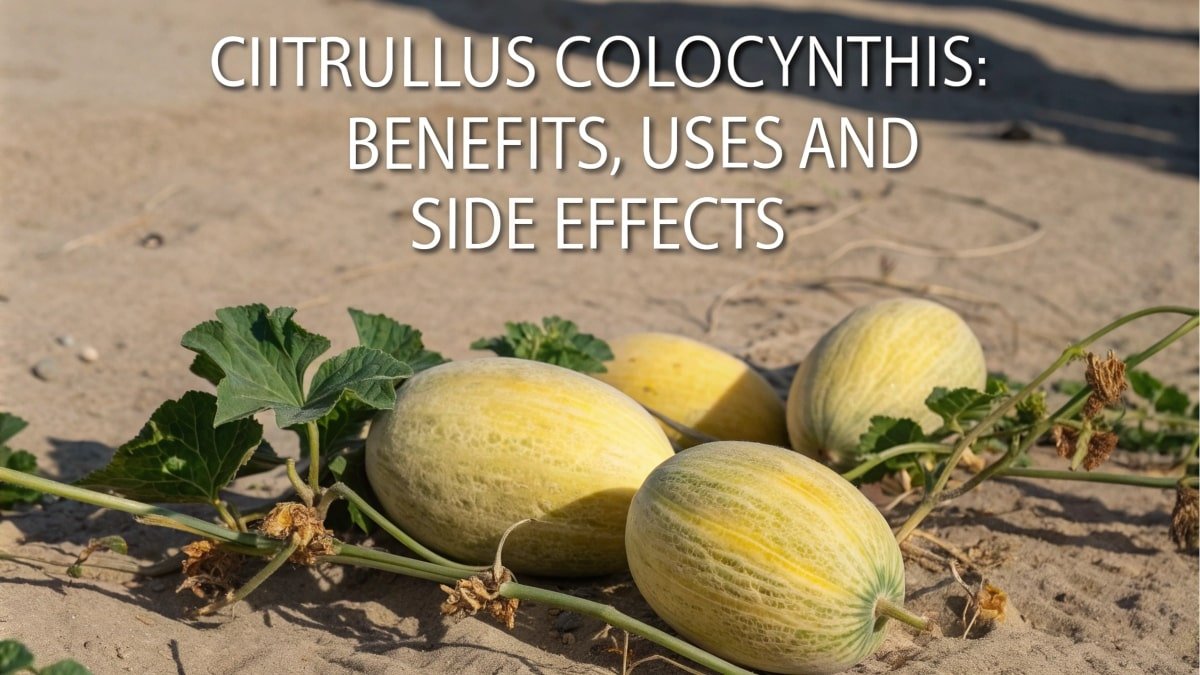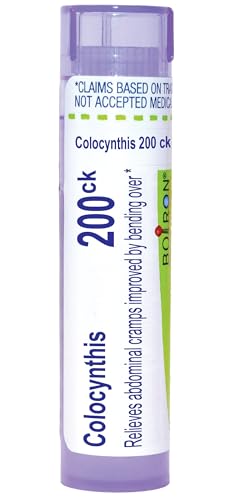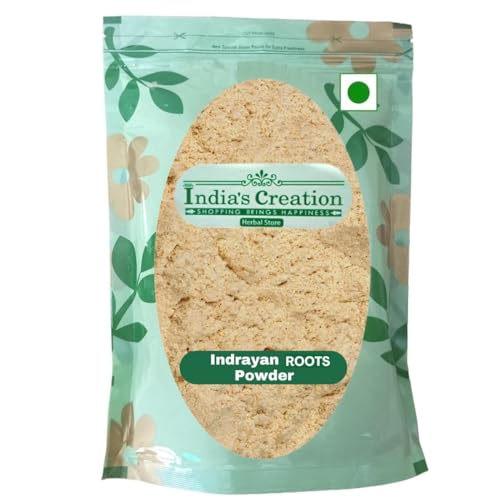Citrullus Colocynthis (Bitter Apple): Benefits, Uses, Side Effects and Potential Interactions
Discover the surprising benefits and risks of Citrullus colocynthis, a potent herb with potential health perks but significant side effects;

Citrullus colocynthis, or bitter apple, is a medicinal plant native to arid regions of Northern Africa, the Middle East, and Asia. This herb is noted for potential health benefits, including blood sugar regulation, anti-inflammatory effects, and digestive support.
However, it possesses toxic compounds that may cause gastrointestinal distress, kidney damage, and severe hypoglycemia when misused. Bitter apple can interact with diabetes medications, increasing the risk of low blood sugar, as well as with anticoagulants.
What is Citrullus Colocynthis?
Citrullus colocynthis, also known as bitter apple or colocynth, is a vine that grows yearly and belongs to the same family as cucumbers, pumpkins and melons – the Cucurbitaceae family.
It has hairy stems and leaves with deep cuts. This plant grows in dry areas of Northern Africa, the Middle East, and parts of Asia, especially in sandy and desert soils.
It thrives in sandy and arid conditions, which allows it to flourish in its native habitats. [1]

It can be found from Morocco to Egypt, and from Israel to Iran and India. It has also been brought to other places like the USA, South America, Europe, and Australia.
People have been using Citrullus colocynthis in traditional medicine for many purposes.
For example, it can help with stomach problems, liver diseases, and diabetes. The seeds are also full of good fats and proteins, which makes them a healthy part of the diet in Africa. Additionally, the seeds contain ~75.1g of mass, contributing to their nutritional value. [2]
However, in some parts of Australia, it is considered a weed because it can grow too much and disrupt other plants.
People in many different places use colocynth to treat both humans and animals. It has many names like Koloquinthe and bitter melon, which shows how well-known it is.
COMMON NAMES OF CITRULLUS COLOCYNTHIS [3]
| Common names | Languages |
|---|---|
| Colocynth | English |
| Bitter gourd | English |
| Bitter apple | English |
| Bitter cucumber | English |
| Koloquinthe | German |
| Coloquinte | French |
| Indravaruni | Sanskrit |
| Handhal | Arabic |
| Ghurunba/Kortuma | Punjabi |
| Makhal | Bengali |
| Paeḍikari Attutummatti | Tamil |
| Kadu indravani | Marathi |
| Indrayan | Gujarati |
| Paikummatti | Malayalam |
| Indrayan | Hindi |
| Maraghonae | Pashto |
Nutritional Profile

Citrullus colocynthis has a fair nutritional profile, characterized by a significant content of protein and essential minerals. The fruit and seeds of Citrullus colocynthis are rich in various nutrients, including proteins, fats, carbohydrates, and several essential minerals.
The most important
- The seeds are particularly high in minerals such as potassium (569 mg) and calcium (465 mg), making them a valuable source of these nutrients. They also have good amounts of magnesium and phosphorus. Additionally, the seeds have a high porosity of 53.69%, which indicates potential for processing and storage applications. [4]
- The seeds also have amino acids, like glutamic acid (19.8 g per 100 g of protein) and arginine (15.9 g per 100 g of protein), which are really important for how our body works. [5]
The oil from the seeds has a lot of healthy fats, about 23-25% of unsaturated fatty acids, which make up 70% of the total fat.
Here’s a detailed table with Citrullus Colocynthis nutrition profile
| Nutrient | Amount per 100 g | % RDI (2000 kcal diet) |
|---|---|---|
| Calories | 56.61 kcal | N/A |
| Protein | 24.37 g | 49.5% |
| Fat | 35.00 g | 54.0% |
| Carbohydrates | 10.88 g | 3.0% |
| Fiber | 1.91 g | 7.6% |
| Ash | 3.15 g | N/A |
| Moisture | 3.08 g | N/A |
| Calcium | 465.00 mg | N/A |
| Potassium | 569.00 mg | N/A |
| Magnesium | 70.00 mg | N/A |
| Iron | 30.00 mg | N/A |
| Zinc | 15.00 mg | N/A |
Overall, Citrullus colocynthis is not only nutritious but also possesses various bioactive compounds that contribute to its health benefits, including anti-inflammatory and antioxidant properties, making it a valuable addition to both culinary and medicinal applications. [6] [7] [8] [9]
Citrullus Colocynthis Health Benefits

While Citrullus colocynthis contains a number of potentially beneficial compounds, it is important to note that it also contains harmful chemicals that can cause severe stomach irritation if consumed in large quantities. The bitterness of the fruit naturally limits its consumption, but it should still be approached with caution. [10]
1. Anti-inflammatory Properties
Citrullus colocynthis shows notable anti-inflammatory effects, attracting attention from both traditional and modern medicine.
It can reduce inflammation by blocking histamine, serotonin, and prostaglandins. Studies indicate it decreases swelling and white blood cell infiltration when dosed at 250-500 mg/kg. [11]
Its extracts have shown significant analgesic effects in various animal studies, supporting its traditional use for inflammatory conditions like joint pain and rheumatoid arthritis. [12]
Active compounds such as cucurbitacin and flavonoids enhance its anti-inflammatory capabilities, with research confirming its efficacy in reducing pain and inflammation in multiple tests. [13]
2. Digestive Health Support
Citrullus colocynthis has a long history of use in traditional medicine for digestive issues. The fruit acts as a strong laxative, aiding constipation and promoting regular bowel movements. [14] [15]
It may also alleviate stomach ailments like gastroenteritis due to its anti-inflammatory properties. However, caution is advised as excessive consumption can lead to gastrointestinal irritation or severe diarrhea.
3. Antioxidant Effects
Bitter apple is also a powerful antioxidant. This means it can help protect your body from damage caused by free radicals.
Compounds like cucurbitacins, polyphenols, gallic acid and glycosides contribute to these effects, with studies showing that bitter apple extracts effectively neutralize harmful molecules. [16]
Notably, it may protect the liver from injury and potentially aid in cancer prevention and brain health, including conditions like Alzheimer’s disease.
While promising, further research is needed to fully understand its antioxidant mechanisms .
4. Blood Sugar Regulation
Research shows that Citrullus colocynthis can significantly assist in regulating blood sugar levels, making it beneficial for diabetes management. Extracts have been shown to lower HbA1c levels and reduce fasting blood glucose levels. [17]
Its active compounds possess strong anti-diabetic effects, traditionally used in various cultures for diabetes-related conditions. However, caution is necessary due to the risk of hypoglycemia when combined with diabetes medications .
5. Pain Relief Potential
Citrullus colocynthis shows promise for pain relief as well, due to its anti-inflammatory properties. As mentioned before, compounds like cucurbitacins interfere with pathways related to pain signaling substances such as histamine and serotonin.
Animal studies support its efficacy in reducing inflammation and pain associated with conditions like rheumatoid arthritis. Despite its potential benefits, it can be toxic at high doses, necessitating careful use.
6. Skin Health Benefits
Citrullus colocynthis offers several potential benefits for skin health. Traditionally used for various skin conditions, its sticky extract is effective in treating issues like eczema and promoting wound healing.
Research has shown that applying the fruit’s pulp can help reduce cold sores, often clearing them in about five days. [18] [19]
Additionally, Citrullus colocynthis possesses strong antimicrobial properties, effectively combating bacteria such as Staphylococcus aureus and Bacillus subtilis, which can lead to skin infections. [19] [20]
The fruit is also rich in linoleic acid, an essential fatty acid that helps maintain skin barrier function and reduces inflammation, making it beneficial for irritated skin. [18] [19] [20]
Furthermore, its extracts can soothe redness and itchiness associated with conditions like eczema. However, while it has many advantages, some individuals may experience skin irritation or allergic reactions, particularly those sensitive to related plants like cucumbers or pumpkins. [20]
Therefore, it’s advisable to consult a healthcare professional before use. Overall, Citrullus colocynthis shows promise as a natural remedy for enhancing skin health and treating various dermatological issues
7. Weight Management Aid
Citrullus colocynthis may assist with weight management by improving insulin sensitivity and lowering blood sugar levels. [21]
It supports digestion and provides essential nutrients that aid metabolism while reducing inflammation linked to obesity.
However, side effects are possible, especially for those with underlying health conditions; thus, more research is necessary to ensure safe usage .
Related: 3 herbs that fight bloating and help digestion
8. Immune System Boost
Citrullus colocynthis enhances immune function by reducing inflammation and combating oxidative stress in the body.
Studies have shown that the seeds of this plant can improve the way our bodies fight infections, especially in birds that are stressed by heat.
It does this by helping our white blood cells and other parts of our immune system work better. In fact, supplementation of CC seeds has been shown to significantly increase total white blood cell counts in heat-stressed broilers. [22]
Additionally, the inclusion of CC seeds in poultry diets has resulted in significant reductions in plasma triglycerides and cholesterol levels, showcasing its potential benefits for overall health. [23]
Additionally, this plant helps reduce signs of stress in the body, like certain chemicals that go up when we are under too much pressure or strain. It also helps improve the way our bodies use antioxidants, which keep our cells healthy.
Using this plant in what we feed to chickens shows that it can naturally help their bodies’ defense systems, which could mean it might help humans too.
However, more research is needed to understand how it works and to find the best and safest amount to use. Scientists are also trying to learn more about the special parts of the plant’s seeds that have these health benefits.
Traditional Medicinal Uses

Citrullus colocynthis, has been used in traditional medicine for a long time.
Research has shown that this plant helps to lower blood sugar levels, which is great for people with diabetes. It also helps with inflammation, making it useful for conditions like rheumatoid arthritis and stomach inflammation. [23]
According to traditional uses, Citrullus colocynthis helps with problems related to digestion, like constipation and liver issues. It can also help with pain from headaches and sore joints. The plant has antioxidants that protect the body from damage caused by oxidation. [24]
This plant has also been used to treat skin problems like scrapes and sores, as well as breathing problems like bronchitis and asthma. It has the ability to fight germs, which helps with infections. [23] [24]
However, it can cause some side effects like stomach upset and skin irritation, so it should be used carefully, especially if taking other medicines. Even though it has many health benefits, it’s important to be careful when using it. [23]
Other Uses
Citrullus colocynthis, also known as bitter apple, has many uses beyond just being a nutritious plant. It is used in traditional medicine, agriculture, cosmetics, and even the food industry. [25]
- Healing sickness: According to research, it can help with problems like diabetes, liver issues, and stomach troubles. It has been traditionally used to treat conditions such as asthma, bronchitis, and joint pain. [26]
- Soothing swelling: It can ease the pain from conditions like joint inflammation. Studies have shown its anti-inflammatory properties, making it useful for treating arthritis. [24]
- Fighting germs: It can combat certain bad bacteria and fungi. Its antibacterial and antifungal properties have been documented in various studies. [24]
- Skin care: The inside of the fruit is good for treating skin blemishes. Its use in cosmetics is supported by its ability to improve skin health. [25]
- Helping in farming: It can be used as extra food for animals, helping to keep them healthy. Its drought-resistant nature makes it valuable in agriculture5.
- In old remedies, bitter apple is often used because it can reduce pain and swelling, making it useful for treating arthritis. It’s also good for fighting off infections because it can kill certain germs. [24]
- In the food industry, it’s used to make things taste better and last longer. The strong-flavored parts of the plant are used in various industries. The seeds and oil are full of good nutrients and have potential applications in food technology. [24]
- In medicine, it could be very useful in making drugs to treat various ailments. Its bioactive compounds, including cucurbitacin, flavonoids, and polyphenols, give it medicinal properties. [24]
Citrullus Colocynthis Side Effects

Using Citrullus colocynthis, can be very dangerous if not done carefully. According to research, this plant contains toxic compounds that can seriously hurt your stomach and intestines, causing bloody diarrhea, bad stomach cramps, and even deadly conditions. [27]
Some sources support that eating just a little bit of this herb can damage your kidneys, cause seizures, paralysis, and even death. [28]
It can also make your blood sugar drop too low and harm your liver. [29]
Hemorrhagic colitis induced by Citrullus colocynthis ingestion has been documented, highlighting the severe risks of this herb’s use. [30]
Additionally, this plant is known for its potent purgative effects, which can lead to severe gastrointestinal distress. [27]
Pregnant and breastfeeding women, as well as children, should not use this herb at all because it can make them very sick. Even animals can die from eating too much of this plant. [29]
If you do use Citrullus colocynthis, you have to be very careful and only use the amount prescribed by a doctor, and it’s best to have medical supervision. [27]
Useful and Dangerous Parts of Citrullus Colocynthis
Beneficial Parts
- Fruits: Used as a purgative and for treating conditions like asthma, ulcers, and leucoderma due to their bioactive compounds such as glycosides and flavonoids. [31] [32]
- Roots: Effective in treating jaundice, ascites, and rheumatism, showcasing significant pharmacological potential. [31] [33]
- Aerial Parts: Extracts have demonstrated antioxidant and antibacterial properties, making them useful in combating infections. [34] [35]
Dangerous Components
- Seeds and Unripe Fruits: Contain high levels of cucurbitacins, which can be toxic and lead to gastrointestinal distress if consumed in large quantities. [32] [35]
- Overconsumption: Excessive intake of any part can result in adverse effects, including nausea and vomiting, due to the plant’s inherent bitterness and toxicity. [33]
Interactions with medications or supplements
Citrullus colocynthis can interact with various medications and supplements because of its strong effects on the body. It might make diabetes medicines work too well, causing low blood sugar. It could also increase the risk of bleeding when taken with blood-thinning drugs.
Additionally, it may affect how chemotherapy works, so doctors need to check this carefully. This herb can be particularly challenging to manage due to its ability to produce 15 to 30 fruits per plant, which may contribute to its potency in interactions. [36]
Furthermore, the plant’s bitter taste is indicative of its medicinal properties, influencing its interactions. [37]
This herb could also change cholesterol levels, possibly affecting how well statins and other similar drugs work. It might make antibiotics more effective too.
When it comes to interactions with other herbs, Citrullus colocynthis may make other herbs that lower blood sugar, like berberine, work even better. Be careful when using it with herbs that can thin the blood or reduce inflammation, like turmeric.
Some people should be extra cautious; pregnant women, those with sensitive stomachs or kidney problems, and people allergic to squash or melons should avoid this herb or talk to a doctor first.
It’s also important to watch out for allergic reactions or stomach issues when using this herb along with other treatments.
How to consumed it?

Citrullus colocynthis, can be used in a few different ways:
- Laxative: When dried and powdered, it can act as a strong laxative to relieve constipation. Remember, it must be used cautiously to avoid harmful effects.
- Skin Treatment: Extracts mixed with sesame oil can be applied to the skin for up to three months to treat skin problems.
- Food Additive: Adding its compounds to food can enhance flavor, but watch out for side effects like stomach problems or allergic reactions, especially if you’re allergic to cucumbers or melons.
- Soap: The extracted oil from the seeds is often used in various industries for products like soap. [38]
Where can you buy Citrullus Colocynthis?
If you’re looking to buy Citrullus colocynthis, you’ve got a few options. You can check out herbal stores and some pharmacies, where you might find it dried or powdered. It’s sometimes used in cooking or for medicine.
You could also try stores that specialize in Ayurvedic stuff, which is a type of traditional medicine.
Online, you can look on big shopping sites like Amazon. They’ve got things like extracts, oils, and capsules. Here’s a list with products made with Coloccynth.
If you’re into growing plants, some agricultural or plant shops might have the whole fruits or seeds.
But be careful when you’re buying online—sometimes the quality isn’t great. Also, this herb isn’t legal everywhere, and it can be dangerous if you don’t use it right.
Final Take
Citrullus colocynthis is a plant with many health benefits but also some risks. It can help with reducing inflammation and fighting germs. People have used it to treat various health problems, including diabetes, liver issues, and breathing problems.
The seeds can even be eaten and might be good for you. Additionally, Research has shown that extracts from the plant exhibit strong antioxidant activity, which may further enhance its therapeutic potential.
However, this plant can also be dangerous. Eating the fruit pulp can make you very sick, causing vomiting and bloody diarrhea if not prepared right. Too much of it can upset your stomach badly. It can also mix badly with some medicines, especially those for diabetes and blood thinning.
If you’re thinking about using Citrullus colocynthis for health reasons, it’s really important to talk to a doctor or nurse first. They can help you figure out if it’s a good idea for you and how to use it safely.
While it might help your health, it’s not worth taking chances with your well-being. Always be careful and get expert advice before trying any new herb or supplement.
Check also:





